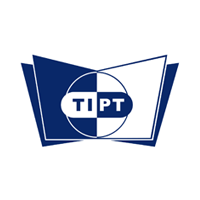
When consumers buy drugs at the pharmacy, they have to be able to trust that the products are safe, high quality and serve their advertised purpose. Drug manufacturers have a significant role in quality assurance as they must follow strict regulations. Manufacturers guarantee safety, efficacy, and consistency by adhering to Good Manufacturing Practices (GMP).
GMP is an essential part of quality assurance, and it ensures that drugs are produced to a consistent and safe standard. While GMP is a large and complex topic, the practices are summarized in the following five “P’s.”
1. People and GMP Training
The GMPs for a manufacturing facility must be strictly adhered to, and this cannot be done without proper GMP training for personnel. All people involved in making a drug must have clear roles and responsibilities. Employees must know how to follow procedures, and their performances must be assessed. This also means that the training methods must be reviewed so that manufacturer knows how it can ensure their employees are properly trained and competent.

2. Procedures
As stated above, GMPs ensure that public trust in the manufacturing quality of drugs is warranted. The way in which GMPs hold manufacturers accountable is through the requirement that procedures be documented and recorded. All procedures must be laid out clearly and followed. If there is any deviation from the procedure, it should be investigated and likewise reported. Documenting procedures also mean that if there is a problem with a batch and it needs to be recalled, finding the source of the issue will often be much easier.
3. Products and Primary Materials
This “P” refers to the final products sold to consumers and the raw materials involved in the formulas. Specifications for raw materials and components must be precise at every phase of manufacture, and there must be a record of the master formula. Standard methods must be followed for packing, testing, and sampling the products. As with the other components of the following GMPs, the testing results should be recorded so that manufacturers are prepared for internal or external audits of their products.
4. Premises and Equipment
Premises is the fourth “P,” and it relates to questions that a manufacturer should be able to answer, such as: How can you tell your equipment has been properly calibrated? What kind of facility set-up will ensure proper cleaning? How will you prevent cross-contamination? The design of a facility must take these questions into account, and equipment must be continuously validated and calibrated. The facility must clearly outline cleaning procedures and document the conditions of the premises and equipment.
Beyond the facility walls, the regulations for the surrounding area, water systems, and waste disposal must also be followed.

5. Processes… and Profit
Another principle that drives GMPs is continuous improvement, and this applies to processes as it does to the other four “P’s.” Processes must be clearly defined, consistent and evaluated. The manufacturer must have a clear outline, and compliance must be provable to an auditor and available for self-inspection to facilitate any possible improvements.
If all five P’s are followed, then there is a “sixth P” that students in the GMP Program should know: Profit. Without the GMPs that make certain drugs fit for intended use, safe, and comply with regulations, a company would be without it. Your capacity to interpret GMPs and ensure they are followed will contribute to the company’s success.
Are you interested in pharmaceutical careers?
Contact the Toronto Institute of Pharmaceutical Technology to learn about our programs.


The content here looks very familiar.
Thanks
thank you for sharing this blog.
Very informative content for GMP, Thanks for sharing amazing blog